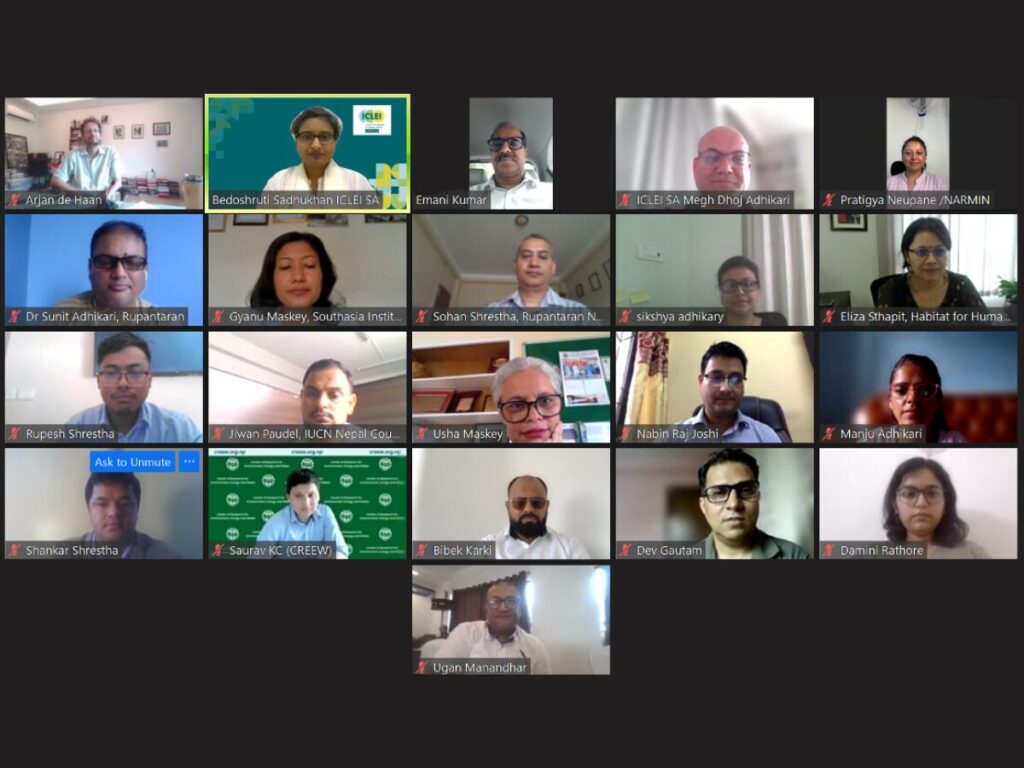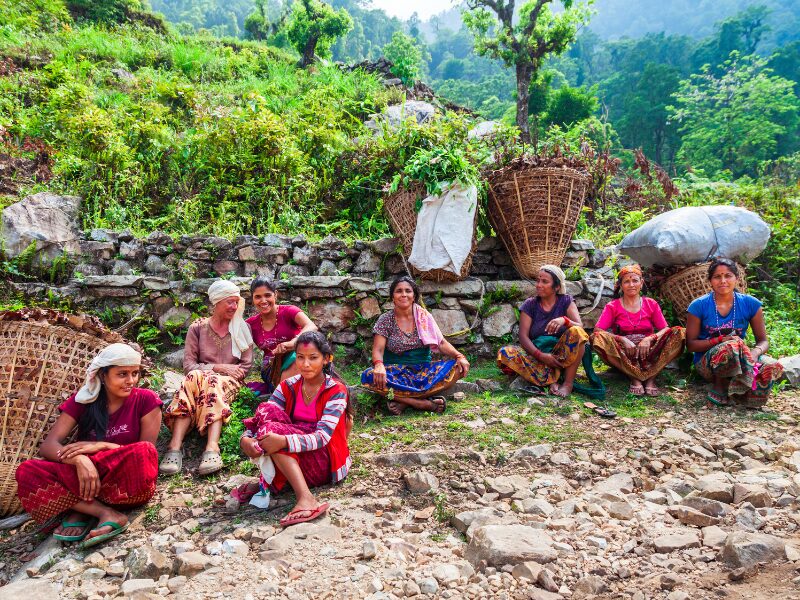Nepalese stakeholders gather for SIRA project launch; take steps towards strengthening local capacities for inclusive climate resilience
/
Over 40 national and international experts from various organizations, including government agencies, nonprofit organizations, academic institutions, and climate practitioners on 26 July 2024 participated in the Nepal project launch and country needs assessment consultation workshop held under the Enhancing Local Capacities in Socially Inclusive Resilience in Asia (SIRA) project.
Organized by ICLEI South Asia, the event focused on identifying the technical knowledge and capacity-building needs of Nepal’s local governments to advance inclusive climate action. It also served as a platform for participants to discuss strategies for strengthening local governments’ capacities to address the escalating impacts of climate change, with an emphasis on gender and social inclusion.
Funded by UK Aid through the Foreign Commonwealth and Development Office (FCDO) and the International Development Research Centre, Canada through the Climate Adaptation and Resilience (CLARE) programme and under the implementation of the ICLEI Southeast Asia and South Asia Secretariats, the SIRA project aims to identify and address the immediate capacity needs of local governments in pursuing climate action that is inclusive and sustainable through a systematic and phased capacity strengthening programme anchored on south-south cooperation among four Asian countries: Bangladesh, Indonesia, Nepal, and the Philippines.
High-level remarks on local resilience

In his keynote address, Suman Subedi, Under Secretary of the Nepal Ministry of Forests and Environment’s Climate Change and Management Division, emphasized that the project’s contribution to localizing national climate policies such as the Nationally Determined Contributions (NDCs) and National Adaptation Plans (NAPs) is critical. He further highlighted the need for collaboration between the organizations present during the launch to maximize the project’s benefits.
Representing the British Embassy in Nepal, Climate and Environment Advisor Ugan Manandhar addressed the critical resource gaps hindering local governments from implementing effective climate actions, particularly technical and financial constraints. He stressed the importance of aligning resilient and inclusive development with broader urban development agendas in Nepal.
Emani Kumar, ICLEI South Asia Executive Director and ICLEI Deputy Secretary General, underscored the challenges local governments face in tackling climate change, particularly the importance of integrating women practitioners to ensure socially inclusive climate action.
Arjan De Haan, Senior Program Specialist of the International Development Research Center, also emphasized the CLARE program’s mission to empower local organizations that work with climate-affected communities.
Multi-level and multi-sectoral insights to Nepal’s climate change landscape
Participants raised key concerns regarding the sectors most affected by climate change in Nepal, including agriculture, forestry, water, and sanitation. The resulting impacts on public health and well-being were discussed, with increasing heat becoming an emerging issue in addition to the more traditional challenges of floods and droughts.
Vulnerable groups, including women, Dalits, Janjatis, people with disabilities, and forest-dependent communities, were identified as being “left behind” in climate adaptation efforts. Participants emphasized that the lack of awareness, technical capacity, financial resources, and human resources at the local government level further exacerbates the challenges of implementing effective climate actions. Additionally, the presence of women were seen to be lacking within local governments, with the few that are present not being meaningfully engaged in policy or planning processes.
To overcome these hurdles, the workshop underscored the need for capacity building, climate integration in local planning, and strengthening institutional mechanisms at all levels of government. The need for multisectoral resilience involving social, environmental, and economic aspects was also highlighted.
Looking Ahead
The workshop concluded with the discussion of possible climate entry points where the SIRA project can help strengthen local government capacities. These include vulnerability assessments, climate finance, nature-based solutions, climate-resilient agriculture and forestry, and women empowerment.
ICLEI South Asia announced that it would develop a country needs assessment based on the insights gathered during the workshop, complemented by upcoming key informant interviews. This report will guide the project’s future efforts to foster local climate resilience in Nepal.
CLARE is a UK-Canada framework research programme on Climate Adaptation and Resilience, aiming to enable socially inclusive and sustainable action to build resilience to climate change and natural hazards. CLARE is an initiative jointly designed, funded and run by the UK Foreign Commonwealth and Development Office and Canada’s International Development Research Centre. CLARE is primarily funded by UK aid from the UK government, along with the International Development Research Centre, Canada.
Categories
Countries
CLARE Pillars
CLARE Themes
CLARE Topics
Published
CLARE Projects
CLARE Partners


